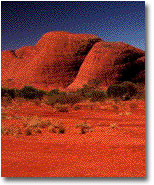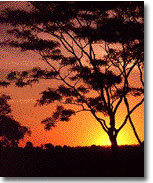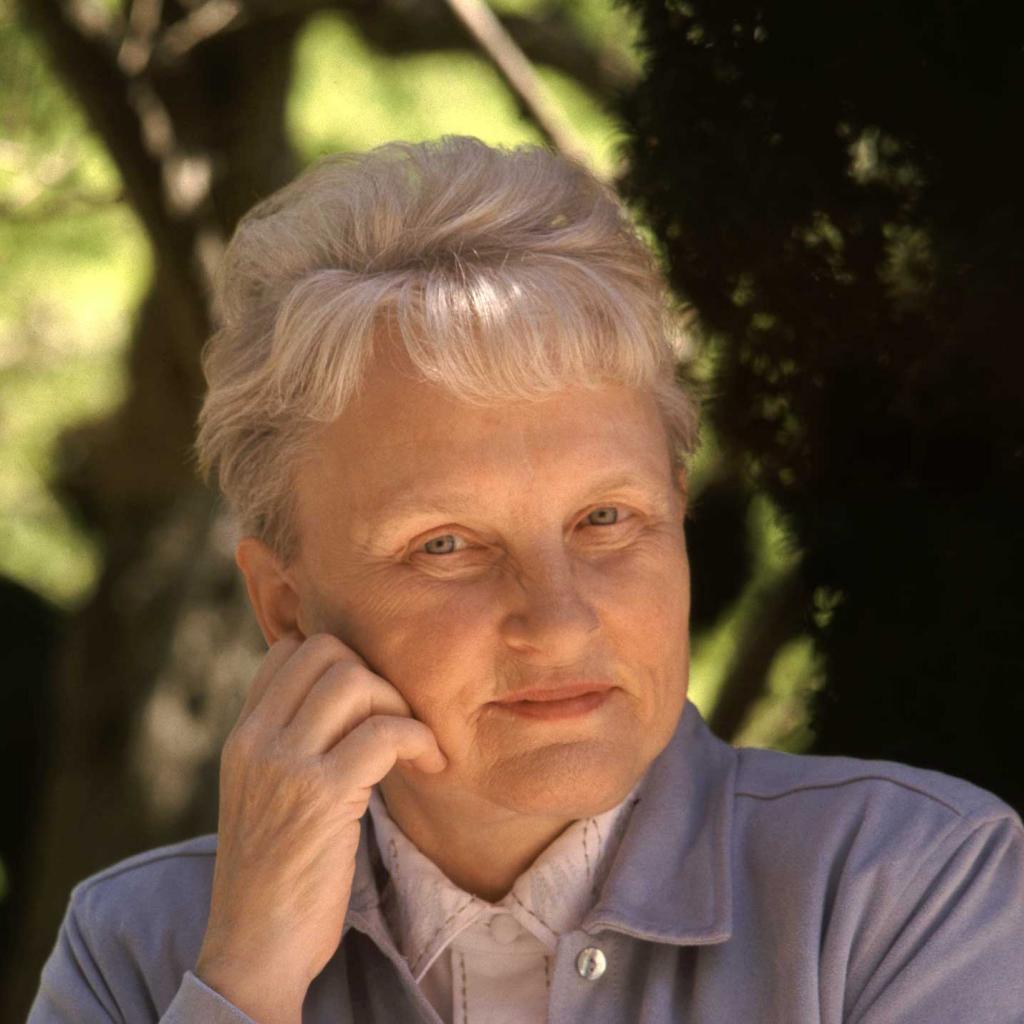Distinguished Professor of the Graduate School; Environmental History, Philosophy, and Ethics
Distinguished Professor of the Graduate School; Environmental History, Philosophy, and Ethics
Recipient of the ![]() Distinguished Scholar Award, the highest award of the American Society for Environmental History (ASEH).
Distinguished Scholar Award, the highest award of the American Society for Environmental History (ASEH).
- Honorary doctorate, California Institute of Integral Studies, 2019
- Honorary doctorate, Umeå University, Sweden, 1995
- PhD History of Science, University of Wisconsin at Madison, 1967
- MA History of Science, University of Wisconsin at Madison, 1962
- B.A. Vassar College, 1958
Environmental history, philosophy and ethics
As Professor of Environmental History, Philosophy, and Ethics, Carolyn Merchant conducts research on these three topics and their interrelationships. She focuses on American environmental and cultural history in the overall context of Western history, philosophy, and the history of science. Over the past four decades, environmental history has emerged as a lively new field. Concerned with human interactions with the natural environment at particular times and places, it draws on social, political, economic, and intellectual history, the history of science, and the roots of environmental values. It deals with relationships between land forms, climate, population fluctuations, pollution, wilderness preservation, resource conservation, and environmental deterioration. The goal, as environmental historian Donald Worster puts it, "is to deepen our understanding of how humans have been affected by their natural environment through time, and conversely. . . how they have affected that environment and with what results."
She is interested in the role of consciousness and symbols about nature, the interaction between productive and reproductive forces in human and nonhuman history, and the place of ecological change in understanding development over time. Studying the past can sometimes suggest guidelines for the future and in this sense environmental history plays a role in policy formation. An analysis of ecological history as the history of an expanding power over nature by social institutions and ideologies, together with identifying possibilities for overcoming an instrumental approach to nature, could lead to a sustainable partnership with the natural world. The viability and success of new human modes of existing within the constraints of the environment and its resources requires both an understanding of the past and the articulation of a new ethic for the future.
Carolyn Merchant holds a PhD in the History of Science from the University of Wisconsin (1967) and honorary doctorates from Umeå University, Sweden, and the California Institute of Integral Studies, San Francisco. She is Chancellor’s Professor and Professor of the Graduate School at the University of California, Berkeley. She is well known for her landmark book, The Death of Nature: Women, Ecology, and the Scientific Revolution, which has shaped the fields of the History of Science, Women’s Studies, and Environmental History ever since its publication in 1980 (40th anniversary edition, 2020). In it she set out a new way of understanding the History of Science that helped to broaden and transform the field. She argued that the Scientific Revolution must be understood not only as the emergence of a mathematical method of describing nature, but through metaphors about the earth as a female to be used, exploited, and conserved for human welfare and through the changing roles of women in seventeenth century society. She was one the first historians of science to investigate the mathematical contributions and social roles of women in the field. The Death of Nature has been the subject of over 130 reviews, major symposia, special journal sections, keynote lectures worldwide, and the topic of a festschrift, After the Death of Nature, in 2018. It has been translated into eight languages: Japanese (1985); German (1987; mass market paperback 1994, 2020); Italian (1988); Swedish (1994); Chinese (1999); Korean (2005); Spanish (2020); French (2020).
Merchant’s contributions to the history of physics have been equally substantial. These include her foundational articles on the history of momentum and energy conservation as debated by Descartes, Newton, and Leibniz. She was the first to analyze the contributions of women Margaret Cavendish, Anne Conway, and Emilie du Châtelet to the history of mechanics. These papers have been collected in her book Science and Nature: Past, Present and Future (2018). In Autonomous Nature: Problems of Prediction and Control from Ancient Times to the Scientific Revolution (2016), she takes a new and innovative approach to the field by investigating the history of science as a means of controlling a rebellious, recalcitrant, rambunctious, and unruly nature. Her latest book, The Anthropocene and the Humanities: From Climate Change to a New Age of Sustainability (2020) demonstrates the critical role played by the technology of James Watt’s steam engine in the discovery of the second law of thermodynamics and the ensuing crisis in global warming. These contributions exemplify her ability to navigate and synthesize sources bridging the history of science, philosophy, and the humanities.
Honors and Awards
As a scholar, Professor Merchant has been honored with numerous awards and fellowships. She has been a Guggenheim fellow; a Fulbright scholar in Sweden, and the 1991 Ecofeminist scholar at Murdoch University in Western Australia. She was a two-time fellow at the Center for Advanced Study in the Behavioral Sciences, Stanford; the John D. and Catherine T. MacArthur fellow in the Ecological Humanities, at the National Humanities Center, Research Triangle Park, NC.; and a member of the Institute for Advanced Study, Princeton.
She is the recipient of both the Distinguished Scholar Award and the Distinguished Service Award of the American Society for Environmental History and is a fellow of the American Association for the Advancement of Science. She received a Doctorate of Humane Letters, California Institute of Integral Studies, and the Albert Nelson Marquis Lifetime Achievement Award, Marquis Who’s Who, in 2019. She has presented over 360 lectures in the United States, Canada, Europe, Brazil, and Australia. In 2019, a book by sixteen scholars, titled After the Death of Nature: Carolyn Merchant and the Future of Human-Nature Relations was published in her honor. In 2024, she received the Distinguished Achievement Award from her undergraduate alma mater, Vassar College. There are over 230 reviews and discussions of books written by Carolyn Merchant.
Service

Carolyn Merchant’s contributions to the History of Science extend far beyond her research. She has performed outstanding service to an ever broadening field. She has been a member of the History of Science Society (HSS) since 1962. She was the local arrangements chair of the HSS meeting in San Francisco in 1973, served as a member of its Council in 1973-75 and on its nominating committee in 1978. She co-founded the Committee on Women in the History of Science in 1973, served as its Chair from 1973-1975 and co-chaired it again from 1992-1994. She was the first co-president of the West Coast History of Science Society from 1971-1973. She is a past-president of the American Society for Environmental History and has served on the executive and advisory boards of the History of Science Society, Environmental History, Environmental Ethics, Ethics and the Environment, the International Journal of Ecoforestry, Organization and Environment, and the Association for the Study of Literature and the Environment. She received the American Society for Environmental History (ASEH) Distinguished Scholar Award in 2010 and the ASEH Distinguished Service Award in 2017.
Current Projects

Carolyn Merchant's research investigates the environmental history of the United States and California. She explores the development of natural resources--agriculture, forestry, ranching, minerals, and water--and the history of the environmental sciences and conservation. She uses documents from ecological and geological history, Native American sources, the gold rush, farming, mining, water use, and urbanization. Her approach is designed to cast new light on the nation's and California's environmental history and contribute to a reassessment of policies. Her students have worked on projects as diverse as the history and philosophy of twentieth century complexity theory, the history of open space in the twentieth century, the history and philosophy of human alienation from nature, and women in climate change.
Carolyn Merchant is the author of The Death of Nature: Women, Ecology, and the Scientific Revolution (1980; 2nd ed. 1990; 3rd ed. 2020); Ecological Revolutions: Nature, Gender, and Science in New England (1989; 2nd ed., 2010); Radical Ecology: The Search for a Livable World (1992; 2nd ed., 2005); Earthcare: Women and the Environment (1996); The Columbia Guide to American Environmental History (2002; 2nd ed. 2007); Reinventing Eden: The Fate of Nature in Western Culture (2003; 2nd ed. 2013); Autonomous Nature: Problems of Prediction and Control from Ancient Times to the Scientific Revolution (2016); Spare the Birds: George Bird Grinnell and the First Audubon Society (2016); Science and Nature: Past, Present, and Future (2018); The Anthropocene and the Humanities: From Climate Change to a New Age of Sustainability (2020), as well as numerous articles on the history of science, environmental history, and women and the environment. She is the editor of Major Problems in American Environmental History (1993; 2nd ed., 2005; 3rd ed., 2011); Key Concepts in Critical Theory: Ecology (1994; 2nd ed. 2008); Green Versus Gold: Sources in California's Environmental History (1998); and co-editor, with Shepard Krech, III and John McNeill, of The Encyclopedia of World Environmental History, 3 vols. (2004).
View Carolyn Merchant's:
Paragraph Bio
Brief Bio
CV
Books
Articles
Articles by Category
Talks Given
Reviews of her Books Carolyn Merchant's Life Events.pdf
Carolyn Merchant's Life Events.pdf Carolyn Merchant, Bancroft Library Interview
Carolyn Merchant, Bancroft Library Interview Distinguished Scholar Award.pdf
Distinguished Scholar Award.pdfRead Review of Carolyn Merchant’s The Anthropocene and the Humanities (New Haven: Yale University Press, 2020)
 Download PDF
Download PDFRead forty-year tribute to Carolyn Merchant’s The Death of Nature: Women, Ecology, and the Scientific Revolution (1980) by Paula Findlen (Public Books, 2020). Download PDF
Read Interview with Carolyn Merchant for the Center for Advanced Study in the Behavioral Sciences, Stanford, April 2021;
 Download PDF
Download PDFListen to Carolyn Merchant's Bernard Moses Lecture, UC Berkeley, May 2010, "Environmentalism: From the Control of Nature to Partnership," Audio; Download PDF
Read Interview on Carolyn Merchant’s book, Autonomous Nature (2016).
Listen to Carolyn Merchant's Lecture on "Autonomous Nature," Nov. 7, 2016, Audio; Download PDF
Listen to Carolyn Merchant's Lecture on "Spare the Birds!, Dec. 1, 2016, Audio; Download PDF
Listen to Carolyn Merchant's Lecture on "The Anthropocene: The Age of Humanity," Feb 1, 2018, Audio; Download Powerpoint; Download Book Summary
Listen to the Livestream for the Carolyn Merchant Symposium, May 3-4, 2018, Audio; Download Symposium Program
Listen to the book launch for “After the Death of Nature: Carolyn Merchant and the Future of Human-Nature Relations (2019).”
Listen to Carolyn Merchant’s Award of an Honorary Doctorate from The California Institute of Integral Studies (CIIS), San Francisco, May 18, 2019.
Listen to Carolyn Merchant reading David Iltis's poem, “The Lesson,” at CAL Berkeley’s Lunchtime Poems, September 4, 2014
Listen to opera singer Chris Pucci sing Happy Birthday to Carolyn.
Read English Translation of Catherine Larerre's French Afterword to Carolyn Merchant's Death of Nature (translated by Kareem Abu-Zeid)
- ESPM 160AC - American Environmental and Cultural History
- ESPM 161 - Environmental Philosophy and Ethics
- ESPM 194b - Capstone Course in Society and Environment
- ESPM 195 - Senior Thesis
- ESPM H196 - HONORS RESEARCH
- ESPM 198 - DIRECTED GROUP STDY
- ESPM 199 - SUPERV INDEP STUDY
- ESPM 298 - DIRECTED GROUP STUDY
- ESPM 299 - INDIVIDUAL RESEARCH
Contact details
Carolyn Merchant
By appointment
UC Berkeley
130 Mulford Hall #3114
Berkeley, CA 94720



